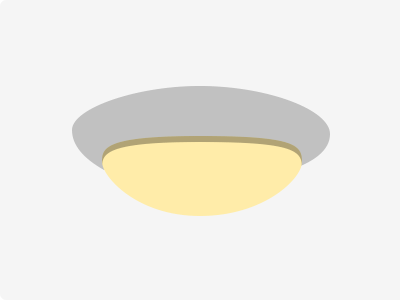
Ceiling mounted lights
Ceiling mounted lights are the most common type of lighting fixture and can cost anywhere from $85-225.
Like anything else in your home, you'll occasionally need to get electrical repairs to keep your home functioning properly and safely. Whether you have an outlet that isn't working or you need a lighting fixture repaired, always hire a professional. Electricity is incredibly dangerous and to anyone who doesn't have the proper training and experience, it can be deadly. Even small jobs can be dangerous. The cost for electrical repairs ranges based on what part of your electrical system needs to be repaired.
Ceiling fans are both practical and aesthetically pleasing. They help keep a room cool in the summer and warm in the winter while providing light and beauty. However, because they run on electricity and have a few different moving parts, they may need to be repaired now and then. The most common ceiling fan repairs needed are:
Electrical repairs are required if your ceiling fan won't stay on or won't turn on at all. Before calling a professional, find out if any other lights or appliances aren't working properly to determine if a fuse has blown. Replacing a fuse is a very simple process you can do without calling in a professional (1). However, if everything else in your home seems to be working properly, you'll need to call a professional to take a look at your ceiling fan. Most electricians charge by the hour, so the price for repairing your ceiling fan will depend on how long it takes the professional to finish the job. In most cases, the job will take 1-4 hours and you'll spend an average of $80-$200 depending on the electrician's hourly price.
Fan motor repairs may be required if your fan won't work but all of the electrical wires are connected and working properly. If you bought an inexpensive ceiling fan, getting the motor fixed may be more than buying a new fan. If you bought a high-end fan, check to see if it came with a warranty and if the warranty is still valid. Then call the manufacturer.
A fan blade replacement will be required if one or more of your fan blades are warped or loose, causing the ceiling fan to spin incorrectly. Replacing the fan blades, or tightening them if they're loose, is a simple and affordable repair (2).
Back to topWhen you walk into a room and turn on the light, you don't really think about the electricity running through the wires and how many pieces need to connect in order to light the bulb. You simply flip the switch and expect the light to turn on. When the light doesn't turn on as expected, you probably try flicking the switch on and off again, hoping it will solve the problem. There are a few reasons why your light fixture may not be working (3):
The most common reason a light fixture won't work is the light bulb is burnt out (4). Changing the light bulb is a very simple process that almost anyone can do. Another common issue, especially in older fixtures, is having a burnt out lamp socket. You can test whether the socket is receiving power by using a voltage meter.
Issues with wiring connections and switch connections should be handled by a professional as they deal with fixing electrical wires. Wiring issues occur in the ceiling box that's behind the light fixture and switch connection issues occur behind the switch plate on the wall. On average, electricians charge $50-$100 per hour for a service (5). The overall cost of a wiring or switch connection repair depends on how long it takes the electrician to finish the job.
The last issue that can cause a light fixture to stop working is the circuit breaker. If your light isn't working, check the circuit breaker. If the breaker is tripped or off, replace the breaker or turn it on.
Back to topIf your HVAC system is not heating or cooling properly, check your thermostat before calling an HVAC professional. There's a chance that your thermostat is in need of repair or maintenance if your home is hotter or cooler than the temperature that appears on the thermostat.
If the cost of repairing your thermostat is more than the cost of the thermostat, you may want to consider getting a new one instead of repairing your current one. If you have an older model, consider upgrading to a programmable thermostat. These can cost as little as $20 for a basic one or $200 or more for one with a ton of features. Programmable thermostats are more energy efficient and can help you save money (7). Along with the cost of the thermostat itself, expect to pay an average of $100-$150 for a professional installation.
Back to topIf your home is in need of a facelift or if your electrical wiring is out of date, there are different types of electrical installations that can help you out. From adding new switches and outlets to update your home's decor to having an attic fan installed to increase energy efficiency, here are the most common electrical installations.
Back to topWith all the electronics and tech gadgets we have nowadays, it seems that there are never enough convenient outlets to keep everything charged. However, you can get new outlets installed throughout your home in more convenient places so you can safely plug in many different items without overloading the circuit. This is especially helpful in the kitchen if you have a lot of appliances and in the living room if you have an intricate entertainment system. The cost of having a new 120V outlet installed is roughly $75-$250 (8). For areas that are consistently exposed to moisture like bathrooms and kitchens, a GFCI outlet is required and costs, on average, $60-$125. If you need to add a new outlet but your current circuit can't handle it, expect to pay an additional $200 or so.
Back to topAn attic fan is extremely beneficial to any home. Since the temperature in your attic can reach an astounding 150 degrees in the summer, getting an attic fan installed to bring those temperatures down will help preserve what you have stored up in your attic as well as bring down your energy bills because of their energy efficiency (9). An attic fan will also help extend the life of your roof.
As far as the cost for getting an attic fan installed, it's cheaper than you may think. Including labor and the fan itself, it costs an average of $500-$600. Of course the quality and type of fan as well as the location will affect the price, making it lower or higher, but all in all, it's a beneficial service that will help you take care of your home.
Ceiling fans are wonderful for many different reasons. They can:
When it comes to choosing a ceiling fan, there are many options available. You need to determine the style, size, speed, and your budget before getting a ceiling fan installed. Also keep in mind that ceiling fans with an Energy Star rating are 60% more energy efficient than other conventional fans (10).
Here's how to determine what size ceiling fan you'll need (11):
You can find a basic, standard ceiling fan that has one or two speeds for $20-$90. If you want something more stylish that has more options, expect to pay up to $600 more. If you want something really high-end - like Tiffany glass or other incredible features - you could pay up to $2,000 or more.
Back to topGetting new lighting fixtures installed throughout your home can give your interior decor a beautiful facelift while also providing you with more energy efficient lights. Whether you plan on replacing your current fixtures with brand new ones or you want to add more lights to a room, be sure to hire a professional to do this job. Lighting installation is not a DIY job.
There are six main types of lights:

Ceiling mounted lights are the most common type of lighting fixture and can cost anywhere from $85-225.
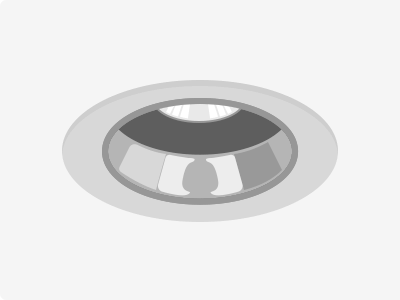
Recessed lights provide a contemporary style and can cost $175-$225.

Wall mounted lights are most common in bathrooms and hallways and can cost $90-$230.
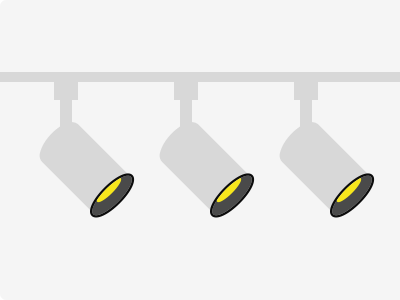
Track lighting is usually used in kitchens or to accentuate a gallery wall and costs an average of $100-$250.
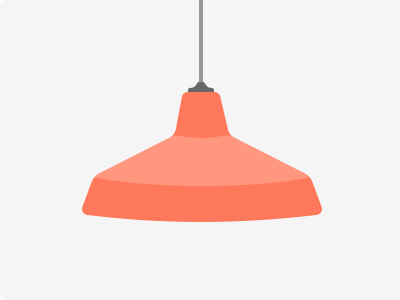
Pendant lights are most commonly found in dining rooms and can cost anywhere from $100-$250 or more.
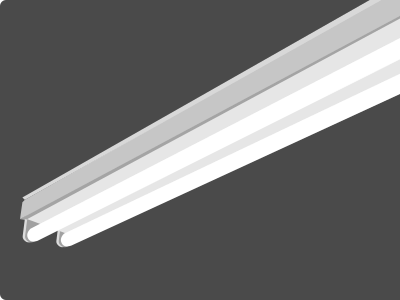
Fluorescent lights are usually found in workshops, garages, and other workspaces and can cost $80-$220.
Along with installations and repairs, electricians and electrical professionals provide other services as well. These are some other types of electrical services.
Back to topDo you think your home uses too much energy? If you're worried about your carbon footprint or simply want to save more money on your energy bills, consider getting a home energy audit. With a home energy audit, a professional will assess the amount of energy your home uses (12) and then provide you with recommendations for improvements to make your home more energy efficient. The auditor will usually have a checklist of areas to inspect such as:
The average cost for a home energy audit is roughly $250-$500, and if you take the necessary steps to go through with the auditor's recommendations for improving energy efficiency, you'll be able to save quite a bit of money on your energy bills.
Back to topHaving landscape lighting installed is a wonderful way to show off the landscaping of your yard. This is especially magical if you love to spend time in your backyard at night and still want to be able to see your beautiful garden. Getting landscape lighting installed can cost you $250-$500 for six lighting fixtures (13), including materials and labor. Depending on how large your yard is or which parts of it you want lit up, you may need more or fewer lighting fixtures.
Back to top
Enter service and
zip code to view
cost breakdown